Rock and pop acts usually have some sort of shelf life – a period of time when things are good and their records climb the chart. (Good things happen to musicians when their records chart.) Then, of course, stuff happens. Certain styles of music go out of favor, bands lose members or break up, or simply didn’t get the lucky breaks anymore. But once in a while, a group that had a number of hits gets lucky and gets that “one last hit” – a record that charts years after their previous hit single.
Kansas – All I Wanted (1986)
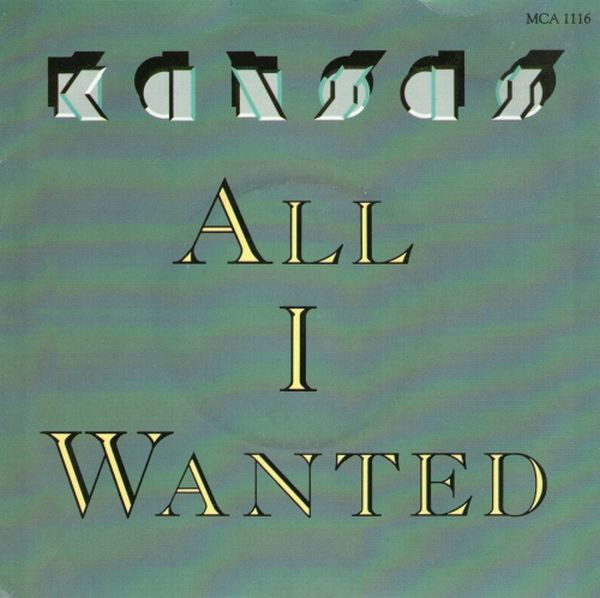
Kansas, a kinda-prog band from middle America (well, Kansas, actually) was one of those mid-1970s road warrior bands that released an album, toured like hell, etc. Like many of their contemporaries on the middle America tour circuit (Rush, REO, Nugent, Cheap Trick and Aerosmith, among many others), rock fans and radio started noticing, bringing the band to larger venues and more spins on the air. Things went well the second half of the 1970s, with the band scoring both AOR and Top 40 hits, platinum albums and packed concert halls.

But by 1980, the writing was on the wall that bands full of old-looking hairy guys (ZZ Top excepted, of course) were no longer welcome, and Steve Walsh left (wisely?) for solo fame and fortune. The rest of the guys auditioned a number of singers (Sammy Hagar and future Kings X vocalist Doug Pinnick among them) before settling on the mighty afro of John Elefante.
Replacing a legendary (if not entirely short) vocalist like Walsh could prove to be a daunting task; however, against all odds, the band’s 1982 album, Vinyl Confessions, contained their biggest hit since “Dust” – “Play the Game Tonight,” which peaked at #17 and even received some airplay on a fairly new cable channel, MTV. (Maybe by being a “faceless” band helped; casual fans probably weren’t aware of the change.)
But that’s where the good times ended; 1983’s Drastic Measures spawned no hit singles and barely made a chart impact, so by 1984, the band had splintered, with members forming Christian rock bands or just doing nothing of note. A hits package was then released and sold modestly, and Kansas was a 1970s dinosaur, whose songs were still played on FM radio alongside Led Zeppelin and Foghat. So, by 1985, Kansas was generally thought of as a relic of a bygone era, mainly remembered for two songs; “Dust in the Wind” (which produced one of the scariest videos ever – those guys weren’t even 30 yet and yet seemed so OLD!) and “Carry On Wayward Son.”
Right about that same time, Walsh’s band, Streets (formed after his wasn’t in Kansas anymore, Toto), had also called it quits after three albums failed to find success. Long story short, he spent that summer on the road playing keys as a sideman to Cheap Trick on their Standing On The Edge tour, who were crossing the states opening for REO Speedwagon. By the fall, he exited that role and went about the task of reforming Kansas.
By the time the album Power was released in 1986, there was a new look to the band. Only drummer Phil Erhart and guitarist Rich Williams were holdovers from the old lineup (violinist Robbie Steinhardt left before Drastic Measures, bassist Dave Hope and guitarist Kerry Livgren didn’t return), and Walsh added bassist Billy Greer from the failed Streets, and former Dixie Dregs guitarist Steve Morse Joined the band.
Although Power was only a modest hit (#35 on the Billboard Top 200 chart,) the single “All I Wanted” was a top twenty hit (peaking at #19). The accompanying video showed very little of the band, mostly focusing on attractive women and couples, and actually only Walsh and Morse were featured. But chartwise, it was the band’s first top 40 hit in four years – their seventh and what proved to be their final top 40 hit. And though the band has carried on (wayward son) since then, surviving lineup changes and barely released albums, “All I Wanted” was that last gasp of singles chart success.
Vital Stats:
- Artist: Kansas
- Single: All I Wanted
- Album: Power
- Years Since Previous Top 40 Hit: 4
- Label: MCA Records
- Producer: Andrew Powell, Phil Ehart
- Released: October 1986
- Billboard Peak Chart Position: #19
Trivia: Kansas is still alive and touring today, though with only two original members, yet all former members remain alive, if not entirely healthy.
Manfred Mann’s Earth Band – Runner (1984)
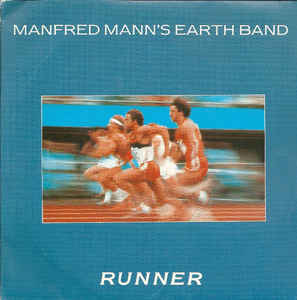
Remember Manfred Mann? (Spoiler alert – NOT his real name!) That tall, glasses-wearing dork who was the namesake behind the C-list band who had the WORST British Invasion hit song “Do Wah Diddy Diddy,” which was quite possibly in the top ten of worst #1 songs of the 1960s. A few minor hits followed, and before the group imploded in 1969, they had a hit with a Dylan cover, “The Mighty Quinn.”
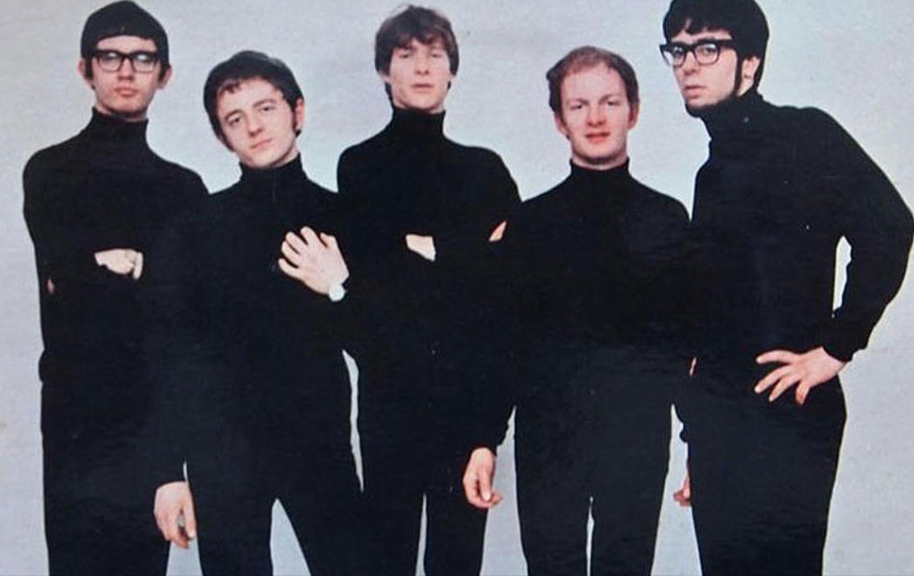
After that, one would assume the Manns would follow the path of Herman’s Hermits, The Zombies (another dorky looking band) and The Troggs – a relic of an exciting era that they were on the fringes of, but in the big picture, didn’t have a huge lasting role in. Don’t let the door hit you on the way out, fellahs. Another band followed, Manfred Mann’s Chapter Three, which was about as successful as it sounds. And after two albums that tanked, it came time for the “real” chapter three – Manfred Mann’s Earth Band, which was formed in 1971.
Ah, yes. Who can forget MMEB’s cover of Bruce Springsteen’s “Blinded By The Light?” After the horror of “Do Wah Diddy Diddy,” Mann pulled a repeater and did it again – having the honor of having one of the worst #1 hits in two consecutive decades. I mean really, who didn’t he was saying “douche,” not “deuce?” More Springsteen covers and other failed singles followed, and by the dawn of the Reagan era, it looked like Mann was finally put out to pasture.
Not so fast there, cowboy! On the band’s 1983 Somewhere in Afrika album was the single “Runner,” which was loosely connected with Terry Fox’s cross-Canada run, which also had ties with John Parr’s “St. Elmo’s Fire (Man in Motion)” 1985 hit, speaking of annoying #1 singles. It probably didn’t hurt that “Runner” was released shortly before the 1984 Summer Olympics – and clips of Olympic runners were featured prominently in the clip. That Olympic connection probably tapped into the mania that surrounded that summer’s Olympics in Los Angeles, because “Runner” peaked at a respectable #22.
Vital Stats:
- Artist: Manfred Mann’s Earth Band
- Single: Runner
- Album: Somewhere In Afrika
- Years Since Previous Top 40 Hit: 7
- Label: Arista
- Producer: Manfred Mann
- Released: May 1984
- Billboard Peak Chart Position: #22
Trivia: Future Firm and AC/DC drummer Chris Slade was a member of Manfred Mann’s Earth Band for most of the 1970s.
(Wish you didn’t know this) Trivia: There is an extended version of “Blinded By The Light.” Ugh.
The Carpenters Touch Me When We’re Dancing (1981)
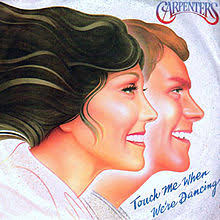
We all know the story of The Carpenters: From their humble beginnings in New Haven, CT to the big time. Their first single of the 1970s (“Close To You”) peaked at #1, and for the next few years, went on one of the hottest streaks of hit singles since CCR – eleven top ten hits in the first half of the 1970s, three of them reaching the top spot.
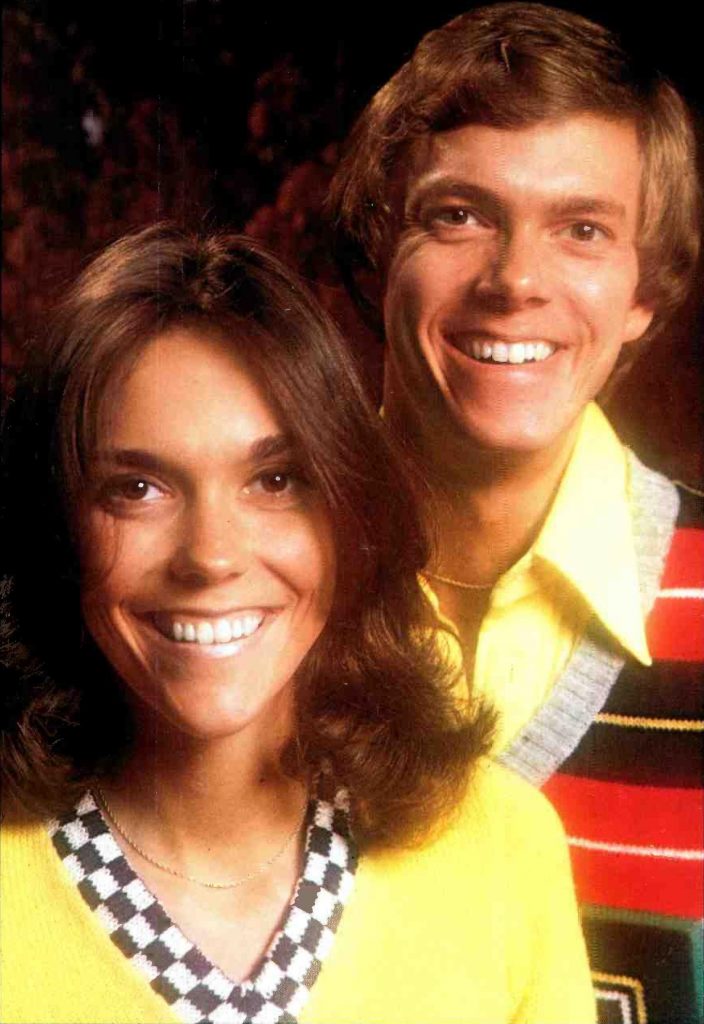
But by 1975, the bloom was off the rose and the hits just weren’t as large anymore. After “Only Yesterday” peaked at #4, their top ten days were behind them. They hit the top 40 five more times – lower and lower chart positions – until their last top 40 hit (of the 1970s, anyway), a bewildering cover of Klaatu’s “Calling Occupants of Interplanetary Craft (The Recognized Anthem of World Contact Day)” which peaked at a lowly #32.
Then the serious stuff happened: Karen’s well-documented health issues and Richard’s detox from prescription meds occupied the rest of the decade. An aborted Karen solo album and an ill-advised marriage took place; between all of these distractions, the band took off four years from releasing a new album or performing. (Though a couple of television appearances did happen during that time.)
So, in 1981, in the middle of the REO/Journey/Foreigner/Styx era, a Carpenters comeback was seemingly impossible. But don’t count them out; they not only released a new album, Made in America, but also had a hit single (the #16 “Touch Me When We’re Dancing”), surprising anybody who was paying attention. The sound, though updated, was recognizably Carpenters. Unfortunately, that was the last hit; although a few more singles followed (and charted), and it all came crashing down upon Karen’s death on February 4, 1983.
Vital Stats:
- Artist: The Carpenters
- Single: Touch Me When We’re Dancing
- Album: Made In America
- Years Since Previous Top 40 Hit: 4
- Label: A&M Records
- Producer: Richard Carpenter
- Released: June 1981
- Billboard Peak Chart Position: #16
Trivia: Karen Carpenter released an unsuccessful single, “Looking For Love” in 1966, four years before “(They Long To Be) Close To You.”
Thank you very much for posting this article about different old music. There were many bands, and people don’t know much about them. Kansas was famous, and in the 70s, and their single “Carry On Wayward Son” became very famous. I was looking forward to getting more such information from you.